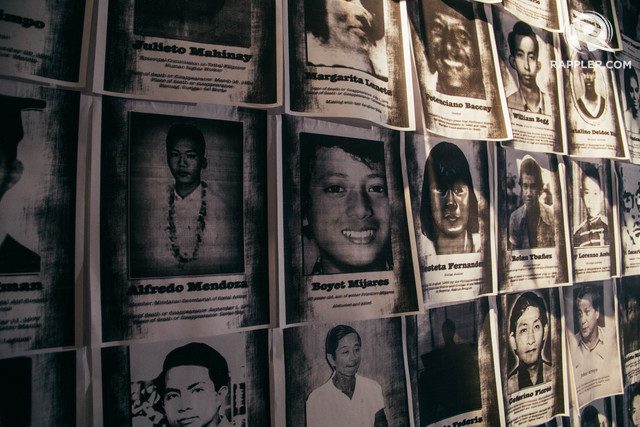SUMMARY
This is AI generated summarization, which may have errors. For context, always refer to the full article.

MANILA, Philippines (UPDATED) – The House of Representatives approved on second reading a joint resolution seeking to extend the validity of funds for the reparation of Martial Law victims to December 31, 2019.
Lawmakers gave their nod to House Joint Resolution (HJR) 26 through viva voce voting or a vote of ayes and nays on Tuesday, August 14.
The Senate version of the joint resolution remains pending with the committee on justice and human rights.
Why do they seek an extension? According to the joint resolution, the account of the Human Rights Victims’ Claims Board (HRVCB) with the Land Bank of the Philippines shall be maintained only until August 11, after which funds will be reverted to the Bureau of Treasury.
As of June 28, the HRVCB reported a balance of P792.628 million. (READ: What the gov’t still owes Martial Law victims)
The HRVCB, created pursuant to Republic Act 10368 or the Human Rights Victims Reparation and Recognition Act of 2013, is a quasi-judicial body. It is mandated by law “to receive, evaluate, process, and investigate” reparation claims made by victims of human rights violations under the late dictator Ferdinand Marcos’ Martial Law.
District representatives said that without “immediate intervention,” victims of human rights violations during the Marcos era would be denied the monetary reparation intended for them.
“While no amount of monetary reparation will restore lost lives, properties, broken relations, and dreams of the human rights victims and their families, the reparation is important for them, as it forms part of the overall recognition of the reality of human rights violations and their immeasurable suffering under the Marcos regime,” read HJR 26.
Legislators said the HRVCB had issued a total of 451 “problematic checks” to the Martial Law victims, 291 of which amounted to P239,198,836 in unreleased checks and another 160 checks totalling P110,931,460 in checks for payees who are now deceased.
In May, HRVCB chairperson Lina Sarmiento said the final list consisting of 11,103 names who will receive monetary compensation was approved.
How is the compensation computed? The amount of monetary compensation works on a point system depending on the violation as provided by the law:
- Enforced disappearance and killing: 10 points
- Torture: 6 to 9 points
- Arbitrary detention: 3 to 5 points
- Other violations: 1 to 2 points
Each claimant that is deemed eligible by the board will receive from P176,779 for one point to P1,767,790 for 10 points. The money distributed comes from the P10-billion in ill-gotten wealth recovered from the Marcos family.
Victims are also entitled to other compensations, such as social services at the Department of Health and the Department of Social Welfare and Development, among others.
Martial Law is considered to be the darkest chapter in Philippine history. Amnesty International estimated that about 70,000 people were imprisoned, 34,000 tortured, and 3,240 killed during Marcos’ iron-fist rule. – Rappler.com
Add a comment
How does this make you feel?
There are no comments yet. Add your comment to start the conversation.